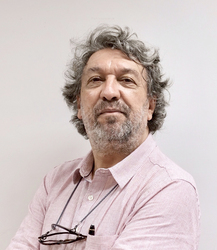
The self-styled Front of Liberation of the State of Cabinda (FLEC) reported the death in combat, last Saturday, of 15 people in a confrontation that opposed soldiers of the Angolan Armed Forces (FAA) and the Armed Forces of Cabinda (FAC), the armed wing of the organization that fights for the independence of the enclave located in the north of Angola.
According to FLEC, the confrontation resulted in the death of 13 FAA soldiers and two FAC soldiers. These figures have not been confirmed by the FAA side.
The occurrence of attacks triggered by FLEC, although intermittent, demonstrates, on the one hand, that the so-called resistance is just that. Founded almost 60 years ago, to fight Portuguese colonial power in the enclave, the organization gained more prominence after Angola’s independence in 1975.
Since then, FLEC, in the different forms it has assumed, has continued to struggle to achieve what it considers a legitimate right, self-determination, as a result of the Simulanbuco Treaty, signed in 1885 between colonial Portugal and kingdoms located in the northern regions of Angola and southern Congo. The document gave Cabinda the status of protectorate of the Portuguese State, which was therefore independent of Angolan territory.
On the other hand, it proves what many say … that the Angolan military elites know, from the experience accumulated in the times when, still a guerrilla, they fought the Portuguese presence in Cabinda, that the region’s morphology is the ideal stage to protect and hinder the end of those who chose the dense jungle as a base to launch military actions in defense of their ideas.
Although there has already been an attempt to reconcile peace in the enclave with the signing of a memorandum in 2006, after the Angolan civil war, the reality is that, from time to time, FLEC launches localized attacks that maintain, in their optics, the living cause.
The most popular happened in 2010, when a command of the organization attacked the bus where the Togo football team was following (three dead, seven injured including footballers), which was going to compete in Cabinda one of the subgroups of the African Nations Championship ( CAN), organized by Angola.
A conclusion can be drawn from all this. The importance of working for dialogue and understanding. This was even advanced to the PLATFORM this week by the prime minister of UNITA’s “shadow government”, Raúl Danda, pointing out that the only solution to what he classifies as a “political-military conflict” in Cabinda has only one way out: “The dialogue”.
This is the keyword for resolving conflicts. Wherever they exist. Create bridges, dialogue, concert. Rebuild. Never, but never, give up on dialogue.
*Platforma Executive Editor



